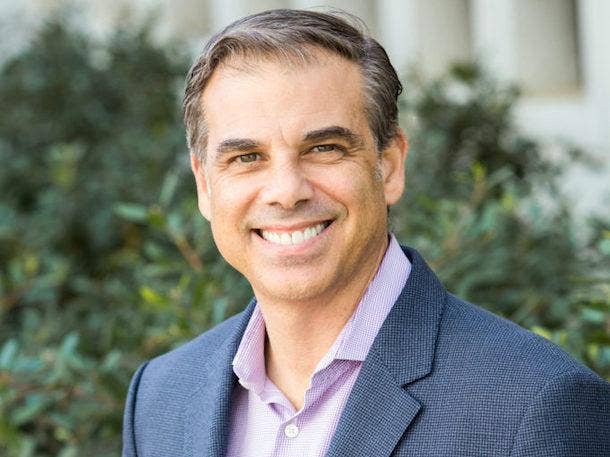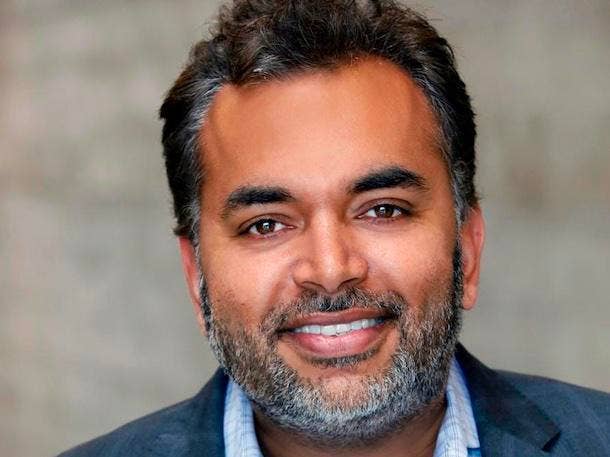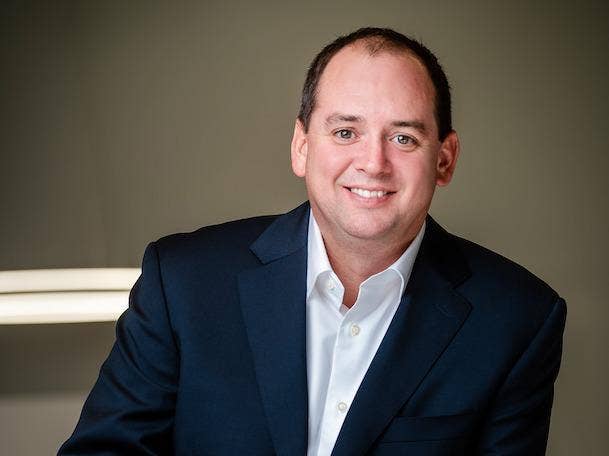10 Cybersecurity Companies Making Moves: January 2023
We’re taking a look at the cybersecurity companies that launched products and partner program updates, made key executive changes, raised funding or announced acquisitions in January.

While plenty of cybersecurity companies have been among the tech industry vendors recently announcing layoffs, many companies in the security market had happier news to announce in kicking off 2023. In January, major moves by cybersecurity companies included executive changes, such as CrowdStrike’s hiring of two C-level executives from rival endpoint security vendor SentinelOne.
[Related: Okta Lays Off 5 Percent Of Staff]
Meanwhile, a number of cybersecurity vendors announced channel-friendly products, such as Arctic Wolf, while others unveiled updates to their partner programs, including Palo Alto Networks. A few raised funding, including Snyk’s funding round from ServiceNow, while NetSPI was among the handful of cybersecurity companies to announce an acquisition in spite of the uncertain economic environment.
What follows are details on 10 of the cybersecurity companies we’re following that made moves in January.

CrowdStrike Poaches Two Execs From Rival SentinelOne
Prominent cybersecurity firm CrowdStrike lured two executives from one of its leading challengers, hiring the chief marketing officer and chief product officer from SentinelOne. CrowdStrike announced that Daniel Bernard (pictured left), who had been CMO at SentinelOne, and Raj Rajamani (pictured right), who had been its CPO, have both joined CrowdStrike’s executive team. Bernard has been named CrowdStrike’s chief business officer, and his duties will include overseeing CrowdStrike’s work with channel partners. Rajamani joins CrowdStrike as its CPO for data, identity, cloud and endpoint. Both of the executives had spent the past five years at SentinelOne.
Bernard is reporting to CrowdStrike CEO George Kurtz, who co-founded the company in 2011. Notably, Bernard’s areas of oversight include the CrowdStrike channel and alliances program with the company’s channel chief, Michael Rogers, now reporting to Bernard. In a post on LinkedIn, Bernard mentioned that he’s focused on pursuing growth with partners, and he also mentioned a goal of of focusing more on small and medium-sized businesses (SMBs). “CrowdStrike is positioned to continue leading the cybersecurity market from the front. We’re going to do it with our partners,” Bernard wrote in the post. “We’re going to double down on every segment, especially the long tail of underserved SMBs.”

Forescout Names New CEO, Looks To Expand MSP Push
Forescout said that it has appointed tech industry veteran Barry Mainz (pictured) as its new CEO as the device security vendor seeks to double down on its work with channel partners, particularly MSPs, executives told CRN.
Mainz succeeds Wael Mohamed, who stepped down as part of a planned transition, the company said. Mohamed served as Forescout’s CEO for two years as the company overhauled its technology platform and revenue model, switching from perpetual to recurring revenue, and focused on achieving revenue growth and profitability.
Forescout offers an automation-driven security platform focused on protecting the full range of connected devices, spanning IT, IoT, operational technology and medical devices. In an interview with CRN, Mainz pointed to a long track record of serving at channel-focused tech companies. From 2018 to 2022, Mainz was the COO of cybersecurity company Malwarebytes. Before that he was the CEO of MobileIron, which at the time was a publicly traded endpoint management and security vendor, from 2015 to 2017. Earlier, Mainz spent a decade as an executive with Wind River, ultimately as its president.
At Forescout, there’s an opportunity to achieve greater scale by working with the channel, given the fact that “there are some distribution channels that maybe we’re not leveraging 100 percent, like MSPs, MSSPs and SIs,” Mainz said.

Saviynt Lands $205 Million, Ex-CEO Returns
Saviynt, which offers what it calls a “converged identity platform,” disclosed it has raised $205 million in new funding that’s intended in part to help accelerate its sales through channel partners, according to founder Sachin Nayyar, who has also returned as CEO of the company. Nayyar, who had previously served as CEO of Saviynt until 2018, will succeed Amit Saha, who has moved into the position of chief growth officer.
Starting on Jan. 1, Saviynt switched its midmarket accounts to a 100-percent channel model, Nayyar told CRN. “We’ve made that big internal shift,” Nayyar said, adding that he and software industry veteran Paul Zolfaghari — who has been newly named president at Saviynt — are “very keen on focusing on the channel and making sure the channel is enabled.”
The new round of funding will be invested in part in hiring of new staff for the company’s channel-facing team, according to Nayyar. The company is aiming to boost its revenue from “channel-led and influenced deals” by 300 percent in 2023 compared to last year, he said.
In December, Nayyar stepped down as CEO of Securonix, which he‘d also founded.

Snyk Gets Funding From ServiceNow
One of the few other security industry funding announcements in January was made by developer security tools company Snyk, which disclosed it has raised $25 million in funding from tech industry giant ServiceNow. In a news release, Snyk CEO Peter McKay (pictured) noted that ServiceNow was a customer and partner before becoming an investor, and “the ServiceNow team has proven their determination to shift enterprises away from slow, burdensome legacy cybersecurity approaches, allowing more resourceful global companies to embrace a modern, developer-centric security mindset.” Snyk also announced an integration with ServiceNow’s Vulnerability Response product.
The investment followed Snyk’s $196.5 million Series G round of funding in December, which saw the company’s valuation lowered to $7.4 billion from $8.5 billion previously.

Arctic Wolf Boosts Cyber Incident Response With New Offering For Partners
Security operations platform provider Arctic Wolf unveiled a new offering that will allow partners to more easily supply their customers with rapid cyber incident response services. Arctic Wolf unveiled the launch of a retainer option for its cyber incident response services, which partners can provide to their customers, including as part of a managed services package. The Arctic Wolf Incident Response JumpStart Retainer features benefits such as a guarantee that cyber incidents will receive a response within one hour, backed by a service-level agreement.
This response time guarantee is enabled in part by the fact that the rates for the service have already been prenegotiated with insurance companies, which expedites a part of the process that can often be drawn out, according to Jay Pasteris, CIO and CISO at GreenPages, No. 169 on the 2022 CRN Solution Provider 500.
Other benefits of the JumpStart Retainer include subscription-based pricing that offers lower costs to customers for the incident response service and also doesn’t require customers to pre-purchase service hours, according to Arctic Wolf. The offering ultimately provides partners with a “conduit” to fast incident response services on behalf of their customers, “making sure that they have somebody that is at the ready in the event of an incident,” said Nick Schneider (pictured), president and CEO of Arctic Wolf.

NetSPI Acquires Offensive Security Firm nVisium
NetSPI, a provider of penetration testing services and attack surface management capabilities, said it’s expanding its capabilities for offensive security services with the acquisition in January of nVisium. The terms of the acquisition were not disclosed, and it was mainly aimed at adding talent for NetSPI’s penetration testing services, according to NetSPI CEO Aaron Shilts (pictured). The acquisition brings two “complementary offensive security teams together who are committed to delivering the highest standard of penetration testing on the market today,” Shilts said in a news release. The acquisition follows NetSPI’s $410 million funding round in October, aimed at uses including the expansion of its channel program.

Palo Alto Networks Unveils Details On NextWave Program Updates
In partner program news, Palo Alto Networks announced more details about current and forthcoming updates to its NextWave Program. Palo Alto Networks Channel Chief Tom Evans (pictured) said in a blog post that “Over the next 12 months, we will unveil the most comprehensive set of NextWave enhancements in our company’s history. These enhancements kick off today with the unveiling of our NextWave program framework, the foundation upon which we will build our partner blueprint for success.”
The program includes five distinct “paths” for partners depending on whether they’re predominantly a solution provider (focused on offering specialized expertise in products and services); an MSSP; a services partner (for consulting, professional or risk liability services); a distributor; or a cloud service provider (focused on marketplace transactions).
Palo Alto Networks is also dramatically expanding its services specializations as well as adding new proficiencies, including professional services proficiencies and the vendor’s first managed services proficiency.

Radware Unveils New Channel Program
Another security vendor that announced partner program changes in January was Radware, which offers cybersecurity solutions including application security, DDoS protection and public cloud security. The company announced its new program, the Radware Cybersecurity Partner Program, which includes “new participation tiers, training, financial incentives, and support materials,” the company said in a news release. The program aims to “prepare and position our partners to play an even bigger role in our go-to-market strategy and cloud growth engine,” said Yoav Gazelle, chief business officer at Radware, in the release.

Skyhawk Security Launches Cloud Threat Detection
A spin-off company from Radware, Skyhawk Security, also had an announcement in January with the launch of its cloud threat detection and response offering. The Synthesis Security Platform aims to go beyond typical cloud misconfiguration detection capabilities by using machine learning “to identify correlated sequences of high-priority runtime events and pinpointing exactly when least resistance paths have been exploited to compromise cloud infrastructure,” the company said in a news release. In addition to cloud threat detection and response, the platform also includes CIEM (cloud infrastructure entitlement management), ITDR (identity threat detection and response and advanced CSPM (cloud security posture management), according to the company. Skyhawk Security told CRN that the “vast majority” of its business is channel-driven.

Immuta Launches Continuous Security Monitoring Product
Data security vendor Immuta rolled out new continuous security monitoring capabilities in January with the debut of its Immuta Detect solution. The product “alerts data and security teams about risky data access behavior, enabling quicker and more accurate risk remediation and improved data security posture management across modern cloud data platforms,” the company said in a news release. Last June, Immuta raised $100 million in funding from Snowflake’s venture arm, and noted at the time that Immuta plans to “significantly build out” a channel program.